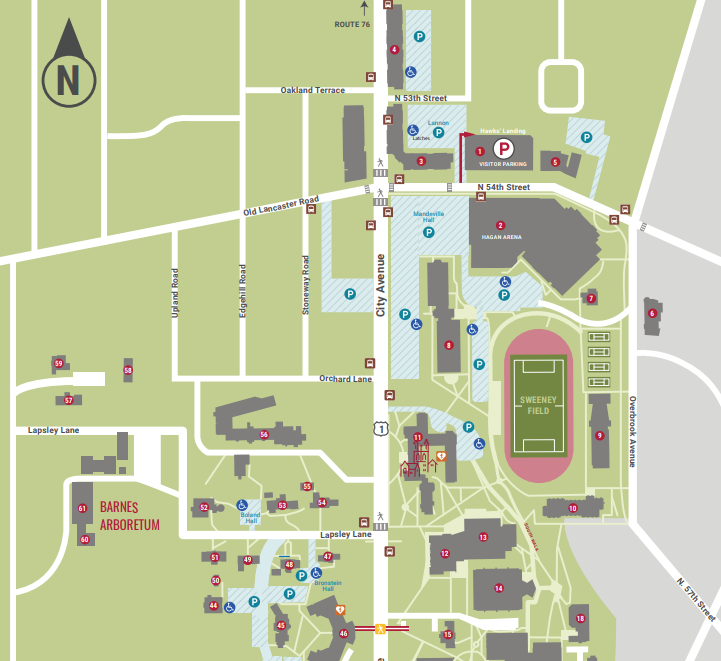2025 Collegiate Recovery Conference at SJU
EVENT OVERVIEW
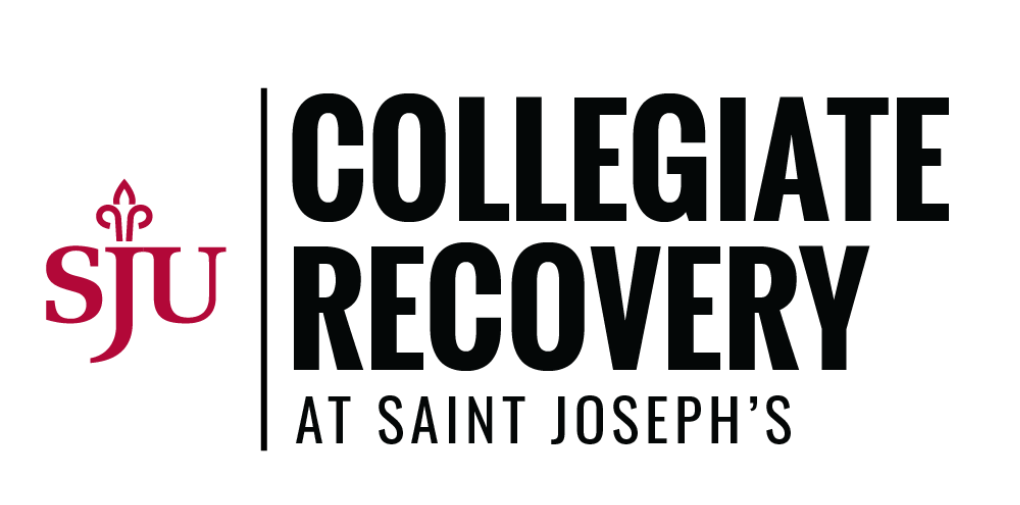
CARE FOR THE WHOLE STUDENT: EXPLORING BEST PRACTICES IN COLLEGIATE RECOVERY
Wednesday, August 6, 2025 | 8:30AM - 4:30PM
Saint Joseph’s University | Campion Student Center
5600 City Ave, Philadelphia, PA 19131
We are proud to host the 8th Annual Collegiate Recovery Conference at Saint Joseph's University in Philadelphia, PA. This year's event will focus on care for the whole student, while exploring best practices in collegiate recovery. Our goal is to foster connection, share insights, and strengthen our collective efforts to support young people on their journey to recovery from substance use and co-occurring conditions.
-
- Explore how a university’s mission influences the creation of recovery-friendly environments and the promotion of holistic support for students in recovery.
- Explore emerging best practices in collegiate recovery and mental health support.
- Explore the impact of stigma on the development and utilization of mental health and recovery services, both on and off campus.
- Foster a community of professionals committed to transforming student support and advancing best practices in collegiate recovery.
REGISTRATION
Early Bird Registration: May 1-July 21, 2025
Professionals: $30
All Students: FREE (code: stu_free)
Regular Pricing: July 22 - August 1st
Professionals: $40
All Students: FREE (code: stu_free)
REGISTER HERE
KEYNOTE SESSIONS
__________________________
Keynote speaker:
HARRY LEVANT, lp.d, ma pcc, icgc-i, jd
Gambling Addiction, College Students, and Mental Health: A Looming Crisis and the Public Health Response
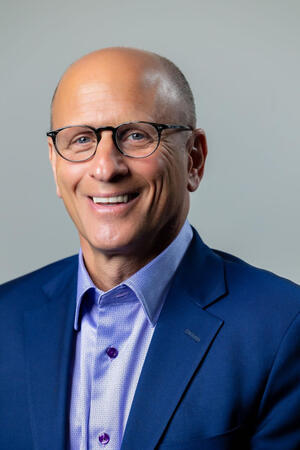
Dr. Harry Levant is Director of Gambling Policy with the Public Health Advocacy Institute (PHAI) at Northeastern University School of Law. He holds a doctorate in law and public policy from Northeastern University where his research focuses on developing a public health approach to prevent gambling-related harm and gambling disorder. He is also an Internationally Certified Gambling Counselor (ICGC-I) and mental health therapist in private practice and concentrates his practice treating people and families struggling with gambling disorder.
Dr. Levant also holds a master’s in professional clinical counseling from La Salle University and a juris doctorate from Temple University School of Law. He is a member of numerous professional organizations including the American Counseling Association, the Pennsylvania Counseling Association, Chi Sigma Iota National Honor Society for Counselors, and Lawyers Concerned for Lawyers of Pennsylvania.
Dr. Levant is a public health advocate, and he recently testified before the United States Senate Judiciary Committee. He also regularly appears on television and radio addressing the prevention and treatment of gambling disorder. His work has recently been featured on CBS Sunday Morning, CBS 60 Minutes, CNN, and the NBC Nightly News. He is the author of the law review commentary “Upon Further Review, the NFL Gambling Strategy is a Risk to Public Health” and co-author with Professor Richard Daynard and Professor Mark Gottlieb of the Boston Globe op-ed article, “Massachusetts Makes a Losing Bet on Gambling.”
Harry is also a gambling addict in recovery, having made his last bet on April 27, 2014. On that day, gambling addiction brought him within seconds of taking his life. Prevention of harm is the best form of treatment. In his role as Director of Gambling Policy at PHAI, Harry is helping to lead the effort to develop a comprehensive public health approach to regulate the gambling industry and prevent public harm.
AFTERNOON PANEL
“Prevention in Practice: Holistic Approaches to Enhance Well-being on Campus”
Image
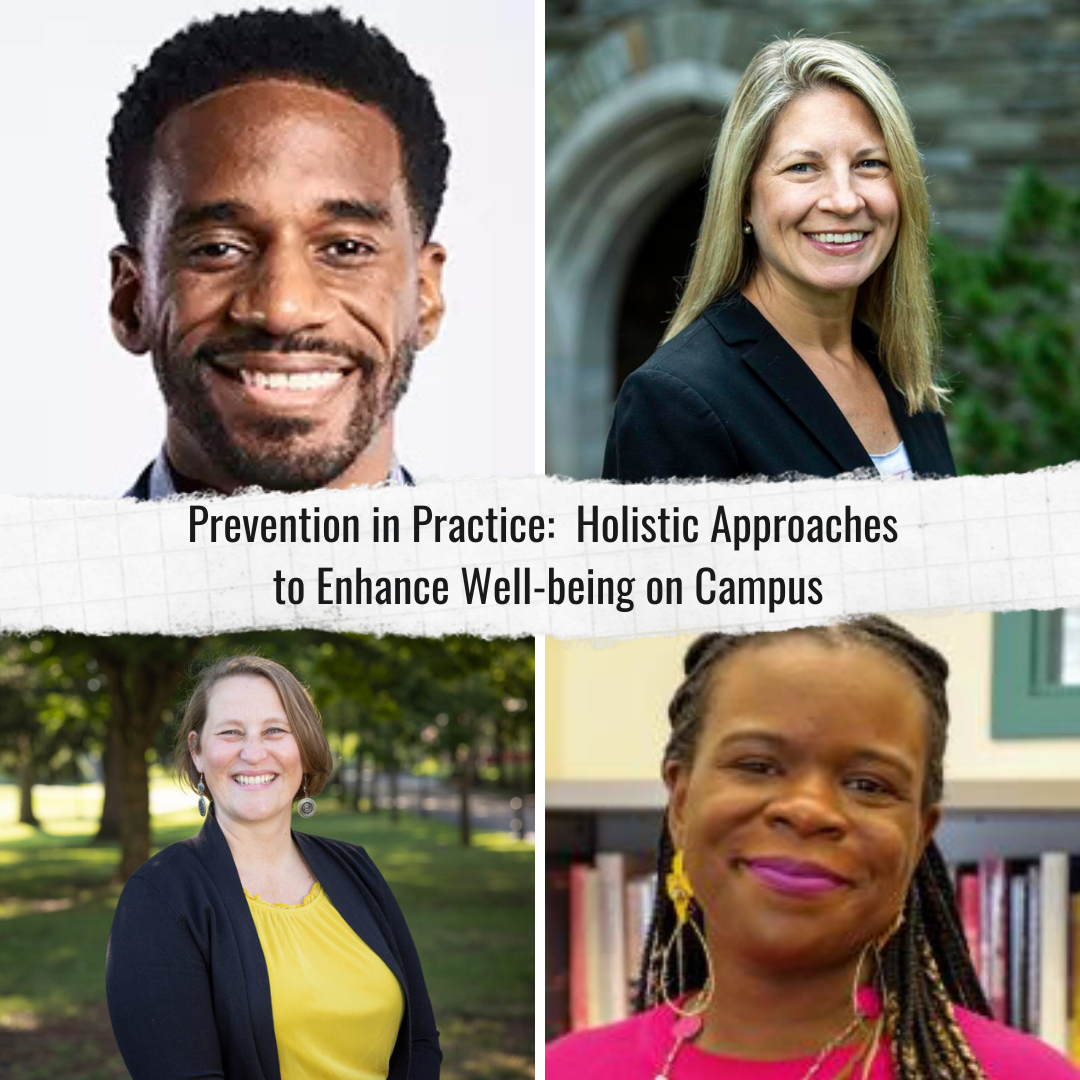
|
|
This panel will explore the critical connection between mental health, substance use and overall well-being among college students. As campuses across the country grapple with rising mental health challenges, this discussion will highlight the importance of integrated prevention strategies that address both mental wellness and substance use in a holistic and proactive way - inside and outside of the classroom.
SCHEDULE
-
Please see below for the 2025 conference agenda.
8:30AM-8:45AM
Registration & Light Breakfast (Doyle Banquet Hall, Campion Student Center, 2nd Floor)
8:45AM
Welcome & Opening Remarks (Doyle Banquet Hall, Campion Student Center)
Sponsor Spotlight - Hazelden Betty Ford
Introduction of Keynote Speaker by Greg Giancola, Outreach Manager, Mid-Atlantic, Hazelden Betty Ford
9:00AM-10:30AM
Morning Keynote Speaker (1.5 NBCC CE Available)
HARRY LEVANT, LP.D, MA PCC, ICGC-I, JD
Gambling Addiction, College Students, and Mental Health: A Looming Crisis and the Public Health Response (Doyle Banquet Hall)
10:40AM-11:30AM
BREAKOUT SESSION #1
Best Practices for Collegiate Recovery for Neurodivergent Students (1 NBCC CE Available)
(North Lounge)
Presenters: Alli MacNamara, Director of College Support, Kinney Center, Saint Joseph’s University and Michelle Kamin, Assistant Director of College Support, Kinney Center, Saint Joseph’s University
Using Creative Expression to Support Students Across the Recovery Spectrum (1 NBCC CE Available)
(Sunroom 1)
Presenters: Stephanie Shiffler, Staff Psychologist/AOD Specialist, Drexel University and Teagan Schirmbeck, Student Employee, Drexel University
Supporting Students in Recovery: Lessons Learned by a Faculty Mentor
(Sunroom 2)
Presenter: Yvonne McCarthy, Collegiate Assistant Professor, Ursinus College
Rewiring the Brain: The Science of Addiction and Neurorestorative Healing (President's Lounge)
Presenter: Eric Rodriguez, Corporate Director, Caron Treatment Centers
11:40AM-12:30PM
BREAKOUT SESSION #2
PA CARES Act 110: Building a Supportive Community
(President's Lounge)
Presenters: Meghan O'Meara, Clinician for House Staff, Jefferson University and Andrew Lee, Director of Tuttleman Counseling Services, Temple University
Harm Reduction, Drug Trends, Overdose Prevention & Reversal (1 NBCC CE Available)
(North Lounge)
Presenter: Sarah Laurel, Founder, Executive Director, Savage Sisters
From Receptors to Recovery (1 NBCC CE Available)
(Sunroom 1)
Presenter: Peter DeMaria, Coordinator of Psychiatric Services, Tuttleman Counseling Services, Clinical Professor of Psychiatry & Behavioral Sciences, Lewis Katz School of Medicine, Temple University
Understanding Our Assets: Examining Strengths-based Approaches to Collegiate Recovery (1 NBCC CE Available)
(Room: Sunroom 2)
Presenters: Dylan Dunn, Senior Director of SAFE Campuses, SAFE Project, Sydney Chiefetz, MPH, Deputy Director of SAFE Campuses, SAFE Project and Nicole Benigno, MSSW, Assistant Director of SAFE Campuses, SAFE Project
You Can't Pour from an Empty Cup: The Clinician's Responsibility to Self
(Room: Doyle Banquet Hall)
Presenter: Dr. Shawna Gigliotti DrOT,OTR/L, Director of Training and Development, Belmont Behavioral Health System
12:30PM-1:15PM
Networking Lunch (Doyle Banquet Hall)
12:55PM
Sponsor Spotlight - SAFE Project, Dylan Dunn, MS, Senior Director of SAFE Campuses
Introduction of Student Scholarship Recipient/s
Sponsorship Spotlight - Belmont Behavioral Health, Dave Mauermann, MS, Director of Business Development, Belmont
1:15PM-2PM Afternoon Keynote Panel
“Prevention in Practice: Holistic Approaches for Mental Health, Well-being, and Substance Use Prevention on Campus” (Doyle Banquet Hall)
- Moderator: Katie Bean, Director Health Promotion, Ursinus College
- Aimee LaPointe Terosky, Ed.D., Associate Dean, School of Education & Human Development, Saint Joseph's University
- Marqus Hunter, Associate Athletic Director, Ursinus College
- Dr. Mallory Everett, Psy.D, LPC, Associate Director CAPS, Rutgers University
2:10PM-3:00PM
BREAKOUT SESSION #3
Reimagining The Collegiate Recovery Paradigm for Community College Students Via Partnerships and Online Solutions (1 NBCC CE Available)
(Sunroom 1)
Presenters: Kristine De Jesus, Executive Director, Students Recover and Eric Klein, Adjunct Professor
Is This a Moral Issue?: Navigating Moral Development of Students, Staff, and Programs in Recovery Spaces (1 NBCC CE Available)
(President's Lounge)
Presenters: Dylan Dunn, Senior Director of SAFE Campuses, SAFE Project, Sydney Chiefetz, MPH, Deputy Director of SAFE Campuses, SAFE Project and Nicole Benigno, MSSW, Assistant Director of SAFE Campuses, SAFE Project
How to Create an Allies of Recovery Program at Your University (1 NBCC CE Available)
(North Lounge)
Presenters: Aimee Della Porta, CAPS Therapist / Clinical Advisor to the Collegiate Recovery Program, Saint Joseph’s University and Mairead Young, Assistant Director of Substance Use Prevention, Education & Support, Saint Joseph’s University
Pixels & Peer Support: Building Recovery Spaces for the Next Generation
(Sunroom 2)
Presenters: Adam Sledd, National Recovery Support Services Director, UNITY Recovery, Elijah Vasinda, Peer Recovery Support Specialist, UNITY Recovery, and Pat Purdie , Supervisor of Reentry Support Services, UNITY Recovery
3:10PM-4:00PM
BREAKOUT SESSION #4
Identifying and Treating Problem Gambling Among College Students
(President's Lounge)
Presenter: Ryan DiMeglio, Co-Director Addiction Counselor Training Certificate Program/Teaching Instructor, Rutgers University
Addiction and Recovery Resources for Health Care Professionals: A Campus and Community Partnership Model (1 NBCC CE Available)
(North Lounge)
Presenter: John Woodruff, Senior Director, Accessibility & ADA Coordinator, Rowan University
Cultivating Psychological Flexibility Through Music
(Sunroom #1)
Presenter: Beth Killian, MSW , Co-founder and Lead Facilitator, Sonic Connections
4:00PM-4:30PM
Conference Closing Session (Doyle Banquet Hall)
-
Breakout Session 1 (10:40AM - 11:30AM)
Best Practices for Collegiate Recovery for Neurodivergent Students (1 NBCC CE Available)
Room: North Lounge
Presenters:
- Alli MacNamara, Director of College Support, Kinney Center, Saint Joseph’s University
- Michelle Kamin, Assistant Director of College Support, Kinney Center, Saint Joseph’s University
Session Description: It is estimated that over 15% of the United States population identifies as neurodivergent, which includes, but is not limited to, Autism Spectrum Disorder, ADHD, Dyslexia, Dyspraxia, and more. Colleges and universities are working to build supportive and inclusive environments for neurodivergent individuals. Studies have shown that Neurodivergent individuals may be at an increased risk of developing a substance use disorder, and that standard substance use disorder treatment may not be meeting their unique needs. Through this presentation, the co-occurrence of substance use disorders and neurodiversity will be discussed, as well as strategies for success to support neurodivergent students with substance use disorders and those who are in recovery.
Using Creative Expression to Support Students Across the Recovery Spectrum (1 NBCC CE Available)
Room: Sunroom 1
Presenters:
- Stephanie Shiffler, Staff Psychologist/AOD Specialist, Drexel University
- Teagan Schirmbeck, Student Employee, Drexel University
Session Description: Though University Counseling Centers (UCCs) play an integral role in providing support and resources about substance use to college students, they have historically had difficulty meeting the needs of the diverse range of students with substance-related concerns (Terrion, 2013). In the absence of a formal collegiate recovery program (CRP), UCCs can utilize outreach as a tool for prevention and support to these students (Banks, 2020). This presentation will explore the potential benefits of art therapy in particular as a tool for UCC outreach to students seeking support for substance-related concerns (Wilson, 2003). Presenters will discuss an outreach program developed and implemented by Drexel University Counseling Center during the past academic year. In this initiative students were invited to attend a five-session series that focused on mindfulness, grounding, creative expression, and storytelling; these themes were explored through the process of building, presenting, and enjoying a complex zero-proof mixed drink.
Supporting Students in Recovery: Lessons Learned by a Faculty Mentor
Room: Sunroom 2
Presenters:
- Yvonne McCarthy, Collegiate Assistant Professor, Ursinus College
Session Description: This session is designed to offer insight into a student/faculty recovery mentorship from a faculty member’s perspective. Through an open discussion, we will explore and share experiences relating to the role of a faculty member serving as an informal campus resource for students in recovery. Thoughts on the vulnerability of visibility as a person in recovery on campus, mentorship vs. sponsorship, and an example of a student/faculty recovery mentorship will be shared.
Rewiring the Brain: The Science of Addiction and Neurorestorative Healing
Room: President's Lounge
Presenters:
- Eric Rodriguez, Corporate Director, Caron Treatment Centers
Session Description: This session explored how addiction affects the brain’s reward system, prefrontal cortex, and stress pathways. It highlighted the cognitive, emotional, and behavioral impacts of chronic substance use and explained how addiction alters brain function over time.
Participants were introduced to neurorestorative health, focusing on the brain’s ability to heal through neuroplasticity and resilience. The session also covered evidence-based strategies in neurorestorative health - that support brain recovery.
Finally, the session examined the role of trauma and stress in addiction and emphasized the importance of trauma-informed care in promoting healing and sustained recovery._____________________________________________________
Breakout Session 2 (11:40AM - 12:30PM)
PA CARES Act 110: Building a Supportive Community
Room: President's Lounge
Presenters:
- Meghan O'Meara, Clinician for House Staff, Jefferson University
- Andrew Lee, Director of Tuttleman Counseling Services, Temple University
Session Description: This presentation outlines the steps for universities to achieve PA CARES ACT 110 certification, emphasizing its crucial role in supporting student mental health. PA CARES ACT 110 certification demonstrates an institution's commitment to providing a safe and supportive environment by establishing comprehensive mental health and suicide prevention plans.
Key areas covered in this presentation include:
- Developing and implementing clear, accessible mental health resources.
- Creating protocols for identifying and supporting students in crisis.
- Promoting awareness and reducing stigma around mental health issues.
- Fostering a campus culture that prioritizes well-being and recovery.Harm Reduction, Drug Trends, Overdose Prevention & Reversal (1 NBCC CE Available)
Room: North Lounge
Presenters:
- Charlie Nolan, Community Healthcare Specialist, Savage Sisters
Session Description: The purpose of this presentation is to provide a comprehensive understanding
of harm reduction strategies, public health issues, current drug trends, wound care related to xylazine use, fentanyl test strips, updated withdrawal protocols, and updated overdose reversal techniques, given the addition of xylazine and medetomidine to the changing illicit drug supply. Our organization stresses the importance of knowing how to interact with people currently using drugs or experiencing homelessness and providing basic public health needs to combat the public crisis we are experiencing. This session aims to equip participants with practical knowledge and resources to address the challenges posed by xylazine use in a thorough and compassionate manner.From Receptors to Recovery (1 NBCC CE Available)
Room: Sunroom 1
Presenters:
- Peter DeMaria, Coordinator of Psychiatric Services, Tuttleman Counseling Services, Clinical Professor of Psychiatry & Behavioral Sciences, Lewis Katz School of Medicine, Temple University
Session Description: There are many paths to recovery. Medications can be a component of a treatment plan to support recovery in students with substance use disorders. This presentation will help explain how, when, and which medications can be useful. The presentation will start with an understanding of the pharmacology of receptors involved in the psychoactive action of drugs of abuse in order to understand how the current medications used to treat SUDs exert their effects. Medications will include those approved to treat nicotine, alcohol, cocaine, opioid, and MJ use disorders, and include nicotine replacement, varenicline, naltrexone, disulfiram, acamprosate, buprenorphine, and methadone. This is an introductory presentation, and no prior knowledge of biology or pharmacology is necessary.
Understanding Our Assets: Examining Strengths-based Approaches to Collegiate Recovery (1 NBCC CE Available)
Room: Sunroom 2
Presenters:
- Dylan Dunn, Senior Director of SAFE Campuses, SAFE Project
- Sydney Chiefetz, MPH, Deputy Director of SAFE Campuses, SAFE Project
- Nicole Benigno, MSSW, Assistant Director of SAFE Campuses, SAFE Project
Session Description: Over the past decade, there has been a movement within higher education to promote educational programming that capitalizes on student strengths as opposed to focusing on “problem areas.” In this session, we’ll apply the principles of strengths-based learning to case studies one might encounter in the field of collegiate recovery. Join your peers for an in-depth discussion of how we might approach complex community issues while honoring the strengths of our students.
You Can't Pour from an Empty Cup: The Clinician's Responsibility to Self
Room: Doyle Banquet Hall
Presenters:
- Dr. Shawna Gigliotti DrOT,OTR/L, Director of Training and Development, Belmont Behavioral Health System
Mental health professionals are at increased risk of burnout due to the emotionally intense nature of their work. This session will explore the prevalence of burnout in the field and the compounding impact of vicarious trauma that can occur when providers absorb the emotional experiences of those they support. Attendees will gain a deeper understanding of how these challenges affect professional well-being and clinical effectiveness. The presentation will also introduce practical strategies to manage the high emotional demands of mental health work, emphasizing the importance of self-reflection and self-awareness as critical tools for resilience and long-term sustainability in the helping professions.
_____________________________________________________
Breakout Session 3 (2:10PM - 3:00PM)
Reimagining The Collegiate Recovery Paradigm for Community College Students Via Partnerships and Online Solutions (1 NBCC CE Available)
Room: Sunroom 1
Presenters:
- Kristine De Jesus, Executive Director, Students Recover
- Eric Klein, Adjunct Professor
Session Description: The community college was designed to be an open-enrollment, cost-effective institution which grew productivity neighborhood by neighborhood, while providing direct service to the “public good” specifically defined by an individual community’s needs. Naming a system that helps workforce development, supports the local community and its residents, and strives for academic excellence can potentially describe both community college and collegiate recovery. Often, community colleges are burdened by budgetary restraints and lack of staffing to support CRPs. This presentation offers an alternative solution. By partnering with online recovery community organizations, community colleges can provide students with recovery support services largely unavailable to their students. This session, while focused upon community colleges, can be a supplement to any college or university seeking expanded supports for their students in or seeking recovery.
Is This a Moral Issue?: Navigating Moral Development of Students, Staff, and Programs in Recovery Spaces (1 NBCC CE Available)
Room: President's Lounge
Presenters:
- Dylan Dunn, Senior Director of SAFE Campuses, SAFE Project
- Sydney Chiefetz, MPH, Deputy Director of SAFE Campuses, SAFE Project
- Nicole Benigno, MSSW, Assistant Director of SAFE Campuses, SAFE Project
Session Description: A critical experience in the development of young and emerging adults is the process of defining for oneself what is right, and what is wrong. A person’s concept of good and bad evolves throughout their life with influence from experiences, communities, hardships, and praises. When applied to the use of alcohol and other drugs, theories and frameworks of moral development can be used to reflect on underlying personal assumptions of substance use, the policies an institution enacts, and the education or punishment associated with such behaviors. This session will uncover how students, staff, and institutions of education assign morality to, and navigate the morality of, substance use, and discuss how to move past judgment and punishment, towards understanding and actions based on social constructs and individual principles.
How to Create an Allies of Recovery Program at Your University (1 NBCC CE Available)
Room: North Lounge
Presenters:
- Aimee Della Porta, CAPS Therapist / Clinical Advisor to the Collegiate Recovery Program, Saint Joseph’s University
- Mairead Young, Assistant Director of Substance Use Prevention, Education & Support, Saint Joseph’s University
Session Description: Our presentation will explore research regarding the impact of providing Allies of Recovery trainings on campuses, to demonstrate the value of such trainings. We will also introduce elements of SJU's Allies of Recovery training (concepts, scenarios, interactive activities) to guide participants in building their own training. And lastly, we will connect the work of developing allies on campus to the University's mission.
Pixels & Peer Support: Building Recovery Spaces for the Next Generation
Room: Sunroom 2
Presenters:
- Adam Sledd, National Recovery Support Services Director, UNITY Recovery
- Elijah Vasinda, Peer Recovery Support Specialist, UNITY Recovery
- Pat Purdie , Supervisor of Reentry Support Services, UNITY Recovery
Session Description: The commUNITY Gaming Center is a pioneering model that integrates digital engagement, prevention, and peer recovery support into a single, youth-centered space. Located in Philadelphia and operated by Unity Recovery, the center offers free access to console and PC gaming, esports competitions, tabletop games like Dungeons & Dragons, immersive virtual reality experiences including the RecoveryVerse, and a community lounge designed for connection and creativity.
Launched with public funding through the Pennsylvania Department of Drug and Alcohol Programs, the commUNITY Gaming Center also demonstrates a replicable model of public partnership, social innovation, and recovery-forward design. Attendees will leave with insights on how to build similar spaces in their communities, partner across sectors, and use gaming as a bridge to belonging and long-term wellness._____________________________________________________
Breakout Session 4 (3:10PM - 4:00PM)
Identifying and Treating Problem Gambling Among College Students
Room: President's Lounge
Presenters:
- Ryan DiMeglio, Co-Director Addiction Counselor Training Certificate Program/Teaching Instructor, Rutgers University
Session Description: This presentation will focus on the identification and treatment of problem gambling among college students. An overview of different gambling behaviors, as well as common motivations and risk factors for gambling will be given. The relationship between problem gambling and other comorbid conditions, such as mental health and substance use issues, will also be discussed. Best practices for screening and assessment of gambling, including problem gambling, among college students will be presented. The presentation will also discuss effective interventions for working with college students experiencing problem gambling, as well as best practices for treatment planning.
Addiction and Recovery Resources for Health Care Professionals: A Campus and Community Partnership Model 1 NBCC CE Available)
Room: North Lounge
Presenters:
- John Woodruff, Senior Director, Accessibility & ADA Coordinator, Rowan University
Session Description: The value of aspiring health professionals increasing their understanding of addiction and recovery is of critical importance.
This session will provide an overview of a campus and community model at Rowan University that illustrates a collaboration with two medical student organization at Cooper Medical School at Rowan University (CMSRU). A model that brings AA and NA speakers to campus to share their lived experience with medical students. Participants with learn about resources and a 'tool kit' to replicate this model in collaboration with health profession student organizations, campus resources and community partners.Cultivating Psychological Flexibility Through Music
Room: Sunroom #1
Presenters:
Beth Killian, MSW, Co-founder and Lead Facilitator, Sonic Connections
Session Description: This interactive presentation introduces a wellness workshop grounded in arts-based experiential learning and Acceptance and Commitment Training (ACT). Designed for those supporting student recovery, our programs blend interactive discussion with guided listening exercises (i.e., no musical background is needed) to demonstrate how music can deepen psychological flexibility, helping participants shift from overwhelming struggle to choice, presence, and taking action based on their personal values. Our facilitation approach is intentionally neither a lecture nor group therapy. We use community-based, arts-driven methods that create space for collective insight and healing, taking extra care not to overpathologize or medicalize participants' lived experiences. Through creative, nonclinical group work (even as many of our facilitators are licensed clinicians), we'll share how our work fosters openness, reflection, and connection. Participants will leave with concrete ideas and tools to sustainably support well-being. It's an approach ideal for professionals seeking creative, scalable strategies for prevention and recovery support.
_____________________________________________________
CONFERENCE PRESENTERS
Image
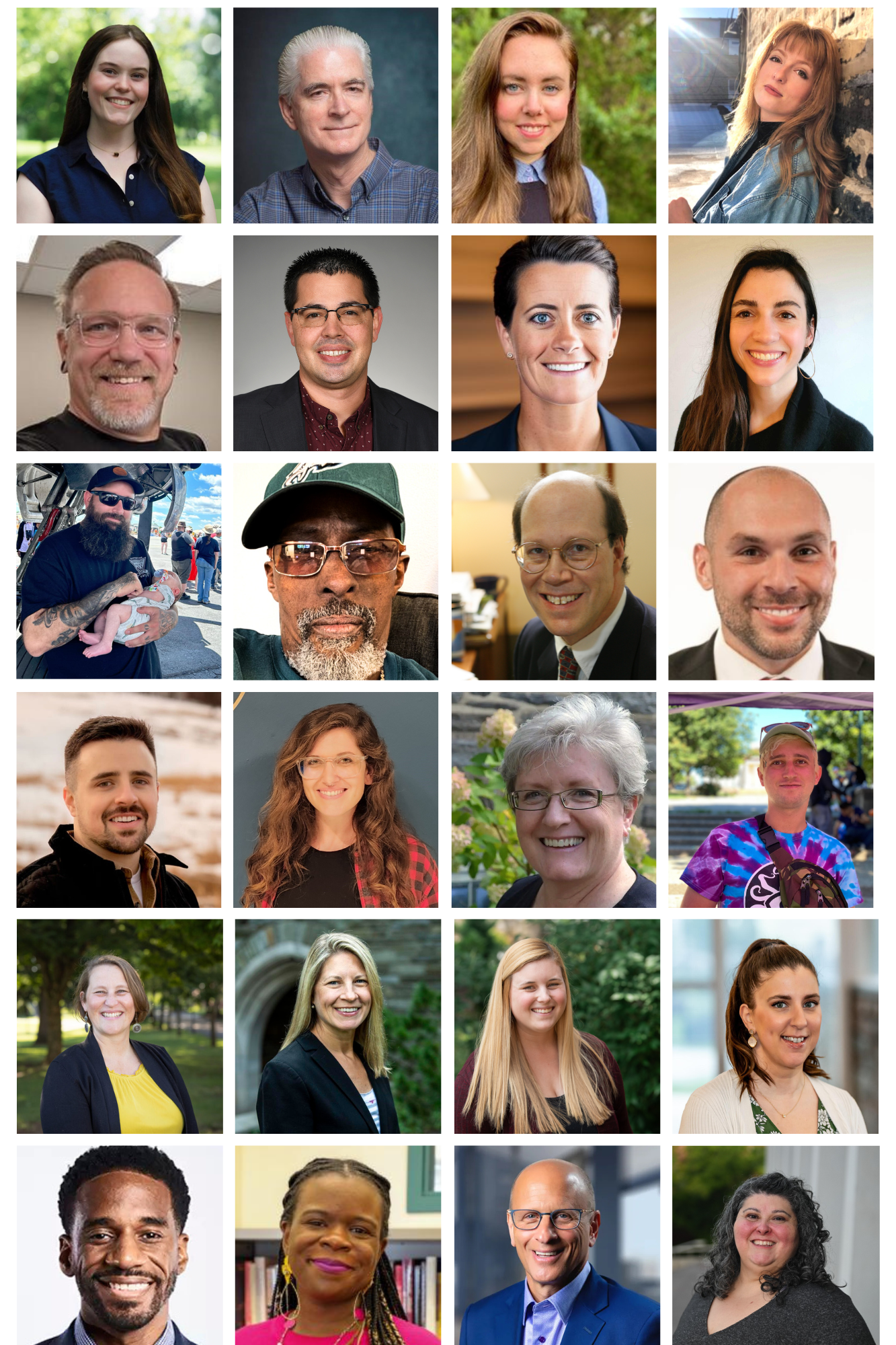
| We’re proud to feature a diverse group of conference presenters who bring a wealth of knowledge and expertise. Explore the dynamic educational sessions they’ll lead—and learn more about each presenter below. |
-
Teagan Annesly (They/She)
MA in Art Therapy and Counseling Candidate at Drexel University
Teagan is an MA in Arts Therapy and Counseling candidate. They integrate artistic conceptualization and visual exploration within a relational, person-centered, disabled, and queer lens. Teagan integrates understanding of the intrinsic internal artist in order to encourage creative existing, self-expression, and idiosyncratic empowerment. As an autistic and gender queer individual, Teagan emphasizes personhood autonomy and a commitment to accessibility, equity, and inclusion advocacy. Within their practice, they utilize hands-on art-making processes as a means to support sensorial embodiment, skill development, release & catharsis, materiality exploration, world-building, self-conducted project maturation, and collaborative care to support individual and group mental health and healing. Their use of the arts within mental health broadens alternative approaches to healing through belief in reimagined, unique, and creative therapeutic care.
Currently, Teagan assists Drexel University’s Counseling Center outreach as well as the development and facilitation of programming for the Alcohol and Other Drugs Resources. They collaborate often with various Drexel departments and organizations to distribute resources, art therapy experiences, and mental health supports campus-wide. As an artist, Teagan is passionate about all things textiles, so you will often find them weaving, embroidering, spinning yarn, sewing, papermaking, among many other techniques. Her husky/malamute dog, Lemon, is her greatest companion and does not underestimate the power of a good puppy cuddle to recharge at the end of the day.
Session: Using Creative Expression to Support Students Across the Recovery Spectrum
Katie Bean (she/her)
Director, Health Promotion, Ursinus College
Katie Bean is the first Director of Health Promotion at Ursinus College. She drives systems-based strategies to enhance well-being for all and led the efforts for Ursinus to become the first liberal arts college to adopt the Okanagan Charter, making a commitment to enhance the well-being of people, places, and the planet. Katie also spearheads the efforts to maintain the certification as the first, and still the only, college in the nation that is a Recovery-Friendly Workplace.
Session: Panel Moderator, “Prevention in Practice: Holistic Approaches for Mental Health, Well-being, and Substance Use Prevention on Campus
Dr Kristine De Jesus (she/they)
Executive Director, Students Recover
Dr. Kristine De Jesus is the Executive Director of Students Recover, the first online student recovery community for post-secondary students in the nation. Dr De Jesus founded Students Recover as part of the Sugarman Practitioner in Residence Fellowship at Princeton University’s School of Public and International Affairs. She served as Coordinator of the Alcohol and Other Drugs program at Montclair State University, where she was an advisor to the Red Hawk Recovery Program and was the Educational Coordinator for the Campus Alcohol and Substance Awareness Program at Temple University. Dr. De Jesus holds a Bachelors of Arts degree from Rutgers University, completed a Masters of Arts degree in Organizational Behavior at Alliant International University and received a Doctorate of Psychology degree from the California School of Professional Psychology, where she specialized in Health & Cross-Cultural Psychology.
Session: Reimagining the Collegiate Recovery Paradigm for Community College Students via Partnerships and Online Solutions
Aimee Della Porta, LCSW (she/her)
AOD Therapist / Clinical Advisor to the Collegiate Recovery Program at Saint Joseph's University
Aimee Della Porta is a proud social worker, former Jesuit Volunteer and Philadelphia area native. Prior to coming to SJU in 2021, she had spent most of her career working with people experiencing homelessness. Aimee works in the Collegiate Recovery Program (CRP) in addition to being a therapist in CAPS. In both roles, she seeks to develop authentic relationships to support students in navigating their college experience. Aimee has been a part of various iterations of SJU's Allies of Recovery training and has focused on making the training interactive and engaging for participants. She is excited to share what she has learned to support fellow colleagues in crafting a training that aims to reduce stigma and promote ally behavior on college campuses.
Session: How to Create an Allies of Recovery Program at Your University
Peter A. DeMaria, Jr., M.D., DFASAM, DFAPA (he/him)
Coordinator of Psychiatric Services, Tuttleman Counseling Services, Clinical Professor of Psychiatry & Behavioral Sciences, Lewis Katz School of Medicine, Temple University
Dr. DeMaria is the Coordinator of Psychiatric Services at Tuttleman Counseling Services and a Clinical Professor of Psychiatry & Behavioral Sciences at the Lewis Katz School of Medicine at Temple University. Board certified in psychiatry, addiction psychiatry, and addiction medicine, he is a distinguished fellow of the American Society of Addiction Medicine (ASAM) and the American Psychiatric Association (APA). He is a graduate of Lafayette College with an AB in chemistry (with honors) and attended the Jefferson Medical College (now the Sidney Kimmel School of Medicine). After graduating, he completed his psychiatry residency at Thomas Jefferson University Hospital where he joined the faculty in the department of psychiatry and was the medical director of the Jefferson Narcotic Addict Rehabilitation Program and a psychiatric consultant at the Jefferson Family Center Program for addicted pregnant and parenting women before moving to Temple where he has worked in the college counseling center for the past 22 years and been a faculty member in the department of psychiatry and behavioral sciences. His areas of interest include college mental health, opioid, benzodiazepine, and marijuana use disorders, psychotherapy, and medical education. He has published a number of scholarly articles on the subjects and presented at national and local meetings.
Session: From Receptors to Recovery
Ryan DiMeglio, MSW, LCSW, LCADC (he/him)
Co-Director, Addiction Counselor Training Certificate Program, Rutgers University School of Social Work
Ryan DiMeglio, MSW, LCSW, LCADC has worked professionally as a social worker for over 12 years, with his work focusing specifically on individuals with addictive disorders and co-occurring mental health issues. During this time, Mr. DiMeglio has worked in numerous different roles, such as a clinician, Program Coordinator, Clinical Director, and Clinical Supervisor.
Presently, Mr. DiMeglio is a Teaching Instructor at the Rutgers School of Social Work and also serves as the Co-Director of the Addiction Counselor Training Certificate Program. In these roles, Mr. DiMeglio focuses on the education of MSW students in preparation for careers in clinical practice treating addictive disorders, including gambling. Mr. DiMeglio is also a Ph.D. student at Rutgers and his research focuses on gambling, substance use disorders, addictive behaviors, and clinical treatment interventions. Through his research and dissemination, Mr. DiMeglio seeks to bridge the gap between research and clinical practice.
Session: Identifying and Treating Problem Gambling Among College Students
Dylan Dunn (he/him)
Senior Director of SAFE Campuses, SAFE Project
Dylan Dunn is the Senior Director of SAFE Campuses at SAFE Project. He has dedicated his career to empowering students impacted by addiction and overdose. In his current role, Dylan works directly with campuses across the country to design and enact harm reduction, recovery, and stigma reduction programs. While based out of Denver, he has assisted over 550 universities. Prior to his work at SAFE Project, Dylan served as a collegiate recovery program coordinator, residence hall director, case manager, and student conduct hearing office.
Sessions:
- Is This a Moral Issue?: Navigating Moral Development of Students, Staff, and Programs in Recovery Spaces
- Understanding Our Assets: Examining Strengths-based Approaches to Collegiate Recovery
Dr. Shawna Gigliotti DrOT,OTR/L (she/her)
Director of Training and Development at Belmont Behavioral Health System
Shawna Gigliotti is the director of Training and Development for Belmont Behavioral Health System. She completed her doctorate in occupational therapy from University of the Sciences in Philadelphia. She began at Belmont in the Clinical Services Department as the only OT in the entire health system. Through program development and evidenced based practice she has built Sensory Awareness Programming throughout all settings and created an OT team supporting the functional independence of clients throughout all practice settings. Shawna has also spearheaded an evidenced based initiative throughout the health system called Operation Last Resort in which she co-led the charge in removing mechanical restraints from Belmont's 252 bed inpatient facility. She continues to add to the mental health literature to increase trauma-informed, patient-centered care that carves out a clear spot at the table for occupational therapists to be an integral treatment team member.
Session: You Can't Pour from an Empty Cup: The Clinician's Responsibility to Self
Chris Golding, CRSS (he/him)
RSS Director, UNITY Recovery
Chris Golding is a dedicated leader with a deep commitment to Unity Recovery, having been with the organization since its grand opening. With over 8 years of personal recovery experience and 6 years in the Recovery Support Services (RSS) field, Chris has played an integral role in various capacities including peer specialist, lead peer, supervisor, and program director. Currently serving as an RSS Director, Chris leverages this diverse experience to drive meaningful change and support within the community.
Chris excels in fostering a culture of empathy and accountability, ensuring that teams are equipped to deliver high-quality, consistent support services across all sites. His journey through multiple roles within Unity Recovery has equipped him with a comprehensive understanding of the organization’s operations and the unique challenges faced by both staff and service users. This experience allows Chris to implement innovative solutions that are both practical and aligned with Unity's strategic goals.
Known for his proactive leadership style, Chris actively engages with staff and stakeholders to ensure that national policies are effectively translated into actionable site-level practices. His ability to synthesize feedback and data into actionable plans has been instrumental in standardizing service models and improving program consistency across regions.
Chris’s dedication to professional development within Unity Recovery not only strengthens internal leadership pipelines but also ensures that the organization remains at the forefront of recovery support services, adapting to emerging trends and needs.
Session: Pixels & Peer Support: Building Recovery Spaces for the Next Generation
Michelle Kamin, LSW, ASDCS
Assistant Director of College Support, Kinney Center, Saint Joseph’s University
Michelle Kamin is a Licensed Social Worker in Pennsylvania and Maryland. She earned her B.A. in Psychology from The College of New Jersey in 2011 and her Master's Degree in Social Work from the University of Pennsylvania in 2013.
Michelle has extensive experience supporting neurodivergent children, adolescents, and young adults, as well as their families, across K-12 schools, outpatient therapy, community mental health, and higher education settings.
She works in the Kinney Center as an Assistant Director of College Support for the ASPIRE Program, where she draws on her clinical and educational background to help students strengthen executive functioning, coping, social, and self-advocacy skills. She is dedicated to helping neurodivergent individuals live authentic, healthy lives, including those pursuing long-term recovery, and to educating those who support them. Michelle takes a strengths-based, student-centered approach and is committed to empowering students to thrive in college and beyond.
Session: Best Practices for Collegiate Recovery for Neurodivergent Students
Beth Killian, MSW (she/her)
Co-founder and Lead Facilitator, Sonic Connections
Beth Killian (she/her) is a clinical social worker, musician, facilitator, and project manager rooted in healing justice. With over 15 years of experience in group facilitation, counseling, curriculum design, and team leadership, she brings a grounded, creative approach to both her clinical and artistic work. Beth currently manages a national initiative with the Black Emotional and Mental Health Collective (BEAM), expanding peer-led healing circles across the U.S.
Compassion, curiosity, and creative expression are the core of her practice—whether she's guiding a workshop or writing a song. Based in Providence, Rhode Island, she performs with the indie folk band How’s About Charlie and the electronic pop duo Crash Space. Beth is the co-founder and Lead Facilitator of Sonic Connections, an organization that weaves together music and psychological flexibility to foster personal and collective healing.
Session: Cultivating Psychological Flexibility Through Music
Alli MacNamara, MS, LPC, NCC (she/her)
Director of College Support, Kinney Center for Autism, Saint Joseph’s University
Alli MacNamara is currently the Director of College Support at the Kinney Center for Autism Education and Support, located at Saint Joseph's University. Alli oversees the ASPIRE program, a program designed for autistic college students to assist in their college success. Alli has a master's degree in clinical mental health counseling from West Chester University, and is a nationally certified counselor (NCC) and licensed professional counselor (LPC) in PA. Alli is also an adjunct professor, teaching classes in the SJU clinical counseling master's program. Alli has taught classes in Diagnosis and Treatment Planning, Psychopharmacology, Practicum, Internship, and more.
Session: Best Practices for Collegiate Recovery for Neurodivergent Students
Yvonne McCarthy, EdD (she/her)
Collegiate Assistant Professor, Ursinus College
Yvonne is a faculty member in the Modern Languages Department and Transfer Advisor at Ursinus College. As a person in long-term sobriety, she has served as a mentor and resource for students and colleagues interested in expanding their recovery support network on campus.
Session: Supporting Students in Recovery: Lessons Learned by a Faculty Mentor
Charlie Nolan (he/him)
Community Healthcare Specialist, Savage Sisters
Charlie Nolan is the Community Healthcare Specialist for Savage Sisters. His duties include providing wound care for our participants, doing street outreach, and providing harm reduction education to the community at large. As a person with lived experience, he has a passion for engaging with PWUD and tirelessly advocating for their rights.
Session: Overdose Reversal, Drug Trends, and Harm Reduction
Dr. Meg O'Meara, LPC (she/her)
Assistant Professor, Jefferson University
Meg (she/her/hers) is a Clinical Assistant Professor in Jefferson’s Department of Psychiatry and Human Behavior and has been a valued member of the Jefferson community since 2017, first leading the Student Counseling Center at East Falls before making the strategic move to Center City. Joining the EHWP in 2022 as a doctoral intern, she's been making a positive impact ever since. With an undergraduate degree in Criminal Justice from the University of Delaware (where she honed her skills as a student-athlete), a graduate degree in Clinical Counseling Psychology from La Salle University, and a PhD in Counselor Education and Supervision from Walden University, Meg is well-equipped to handle just about anything. Meg's expertise encompasses supporting individuals navigating substance use concerns, relationship dynamics, and the pursuit of life balance. She's passionate about working with college students, medical trainees, and athletes. Employing an eclectic approach, she meets clients where they are and guides them toward where they want to be. Meg enjoys family time, workouts, coffee (essential), and laughter during her downtime.
Session: PA CARES Act 110: Building a Supportive Community
Pat Purdie (he/her)
Supervisor of Reentry Support Services, UNITY Recovery
Patrick Purdie is a dedicated and state-certified Certified Recovery Specialist (CRS) and Certified Family Recovery Specialist (CFRS) with a strong passion for empowering individuals through direct peer support. He started with **Unity Recovery** in August 2022 and became Supervisor of Reentry Support Services in September 2024, leading with compassion, integrity, and lived experience.
With a deep commitment to guiding others through their reentry and recovery journeys, Patrick utilizes both personal insights and professional training to foster meaningful, person-centered support. His work focuses on building trust, resilience, and pathways to sustainable recovery for justice-involved individuals and their families.
In addition to his frontline work, Patrick is also passionate about innovative approaches to healing and connection. He is especially interested in the use of **vertical reality within the metaverse** as a supplemental platform to deliver support services—pioneering new ways to reach and engage people in recovery through emerging technology.
Patrick is driven by a vision of holistic, inclusive recovery that meets people where they are—both in the real world and in virtual spaces.
Session: Pixels & Peer Support: Building Recovery Spaces for the Next Generation
Eric Rodriguez, LMSW, CAADC
Corporate Director, Caron Treatment Centers
Eric Rodriguez is the Corporate Director at Caron Treatment Centers, where he oversees initiatives in education, training, program development, and strategic relationship management, with a focus on corporate and organizational settings.
With over nine years at Caron, Eric brings a unique combination of clinical expertise and corporate insight. His professional background spans substance use treatment, mental health, and behavioral healthcare. Prior to his work at Caron, Eric served as a heart and vascular social worker.
He holds advanced degrees in clinical psychology and clinical social work, is a trauma therapist, and is credentialed as a Certified Advanced Alcohol and Drug Counselor (CAADC). Eric’s work is driven by a deep passion for education and a commitment to supporting individuals and organizations in achieving meaningful wellness outcomes.
Session: Rewiring the Brain: The Science of Addiction and Neurorestorative Healing
Stephanie Shiffler, Ph.D. (she/her)
Psychologist/AOD Specialist, Drexel University
Stephanie Shiffler (she/her) works as a part-time staff psychologist and Alcohol and Other Drug Specialist at Drexel University Counseling Center as well as in private practice. Stephanie holds a Master's Degree in General Psychology from The New School for Social Research and a Ph.D. in Counseling Psychology from the University of Georgia. In addition to counseling students with substance-related concerns, Stephanie uses outreach to provide psychoeducation to students about drugs, alcohol, and recovery. Stephanie prioritizes accessibility and nonjudgment in her approach to outreach and aims to give students the tools to make informed, value-based decisions about whether or how they will interact with substances.
Session: Using Creative Expression to Support Students Across the Recovery Spectrum
Adam Sledd, MSW, CRS, CFRS, CRSS (he/him)
National Recovery Support Services Director, UNITY Recovery
Adam Sledd is a person in recovery since 2011, and has served as the National Recovery Support Services Director for Unity Recovery since 2019. Adam earned his Master's degree in Social Work with a Certificate in Nonprofit Administration at West Chester University of Pennsylvania in 2018, and has co-authored one academic paper on recovery community organizations.
Adam has worked in the field of recovery support since 2013, including working with the Pennsylvania Certification Board to develop the examination for Recovery Specialists as well as the core competencies for Recovery Specialist Supervisors, and as an approved Recovery Specialist curriculum trainer. Adam enjoys training and supervising peer specialists, building programs and developing peer leaders.
Session: Pixels & Peer Support: Building Recovery Spaces for the Next Generation
Aimee LaPointe Terosky, Ed.D. (she/her)
Associate Dean, School of Education & Human Development, Saint Joseph's University
Dr. Aimee LaPointe Terosky is Associate Dean of the School of Education and Human Development and Professor of Educational Leadership at Saint Joseph's University in Philadelphia. She is also the university liaison to the School District of Philadelphia, leading the university’s community partnership with Gompers K-8 School. Dr. Terosky’s scholarly and practitioner expertise focuses on teaching and learning and school leader/faculty careers in K-12 and Higher Education, and urban principal career vitality.
Prior to her arriving at Saint Joseph's in January 2011, Dr. Terosky served as the assistant principal of Public School #334 in New York City and was an affiliate professor of higher and postsecondary education at Teachers College, Columbia University. Dr. Terosky received her B.S. in secondary education (social studies) from The Pennsylvania State University, her M.A. in school leadership from Villanova University, and her Ed.D. in higher and postsecondary education from Teachers College, Columbia University. Her dissertation, Taking teaching seriously: A study of professors and their undergraduate teaching, won the 2005 Bobby Wright Dissertation of the Year from the Association for the Study of Higher Education (ASHE), which is considered the highest dissertation honor in the field of higher education.
Over the past five years, Dr. Terosky received Saint Joseph’s Tengelmann Award for Distinguished Research and Teaching, as well as the university’s Teaching, Research, and Justice Merit Awards The Saint Joseph’s and Gompers Partnership received Saint Joseph’s Justice Award, Community Partner Award, and the PHENND Organization’s Lindy Award for Excellence in K-12-Community-University Relations.
Session: Afternoon Panel - Prevention in Practice: Holistic Approaches to Enhance Well-being on Campus
John Woodruff (he/him)
Senior Director, Accessibility and ADA Coordinator Rowan University
John Woodruff, MS Health Education, is Senior Director of the Accessibility Services and Co-Director of the Center for Neurodiversity at Rowan University. He coordinates campus services for students with disabilities and manages transitions for students entering college. John holds an MS in Health Education from St. Joseph’s University and a BS in Business Administration from St. Francis University (Loretto, Pennsylvania). Woodruff is co-author of two books including Creating Inclusive Library Environments; and College Success for Students on the Autism Spectrum: A Neurodiversity Perspective. John’s professional career reflects over 42 years of education, training, and administration of programs for people with disabilities.
In addition, John has been clean and sober for over 42 years (11/12/82) and leads a weekly recovery program for students, faculty and staff at Rowan University.
Session: Addiction and Recovery Resources for Health Care Professionals: A Campus and Community Partnership Model
Mairead Young (she/her)
Assistant Director, Substance Use Prevention Education & Support
Office of Student Support & Well-being, Saint Joseph's University
Mairead Young has worked in education in Philadelphia since 2020, beginning in the School District of Philadelphia before moving to higher education in 2022. She joined Saint Joseph’s University in Residence Life and, in 2025, transitioned to the Office of Student Support and Well-being.
As Assistant Director of Substance Use Prevention Education & Support, Mairead engages students in harm reduction education through programming, as well as individual and group sessions. She is passionate about helping students explore their relationships with substances in a supportive, nonjudgmental environment.
Mairead also co-facilitates SJU’s Allies of Recovery training, a training designed to equip campus community members with tools to support students in or seeking recovery. Drawing on research into allyship training models and engagement strategies, she hopes the session will offer practical guidance for educators looking to develop or enhance Allies of Recovery trainings at their own institutions.
Session: How to Create an Allies of Recovery Program at Your University
TRAVEL & PARKING
PARKING INFORMATION
Free parking is available for conference attendees in the Mandeville Hall Parking Lot (number 8 on the campus map).
Mandeville Hall parking lot is located on N. 54th Street near City Avenue.
***please note that the conference sessions will take place in the CAMPION STUDENT CENTER (number 17 on the campus map). Signs will guide you from the Mandeville Parking Lot to the Campion Student Center. On-campus and street parking may be limited near the Campion Student Center due to construction in the area.***
HOTEL INFORMATION
Image

| Traveling From Out of Town?The Hilton Philadelphia City Ave is located just down the street from the SJU Hawk Hill Campus. Hilton Philadelphia City Avenue |
CONFERENCE SPONSORSHIP
THANK YOU TO OUR SPONSORS
Thank you to these organizations for their generous support!
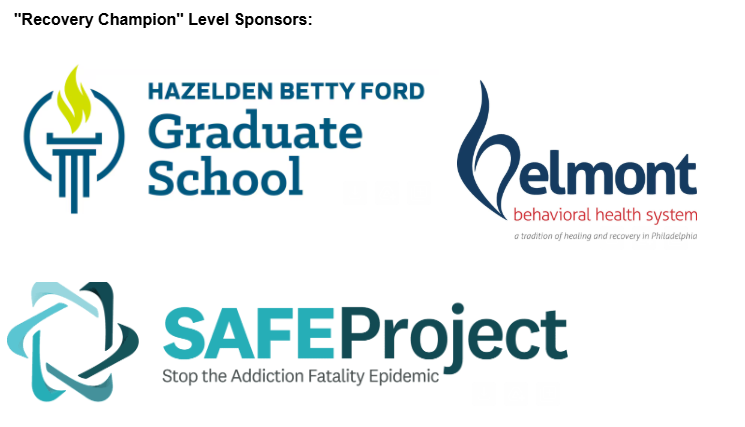
"Recovery Advocate" Level Sponsors:
Image
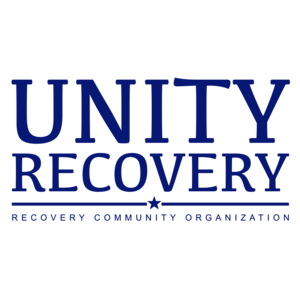
| Image
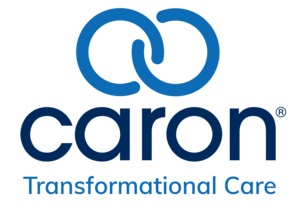
|
Image

|
Image
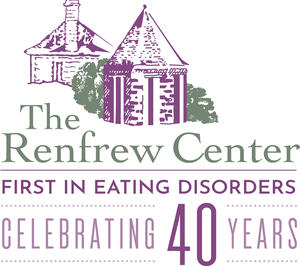
| Image
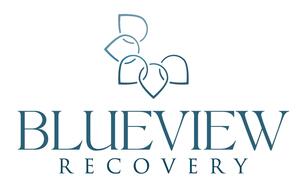
|
-
$2,500 - Community Partner Recovery Champion (3 available)
- Name or company logo featured on website and digital display during conference
- Featured sponsor during Opening and Closing
- Opportunity to address audience during Opening/Welcome session (5 min)
- Opportunity to present an educational ‘Lunch & Learn’ session
- Attendance for 5 included
- Resource table
- This sponsorship includes a $1,000 scholarship for a student in recovery and an opportunity to be featured in promotional materials and media communications as a champion for students in recovery.
$1,000 - Recovery Advocate
- Name or company logo featured on website and digital display during conference
- Featured sponsor during Opening and Closing
- Attendance for 3 included
- Resource table
CONTINUING EDUCATION CREDIT HOURS
The Collegiate Recovery Program at SJU has been approved by the National Board for Certified Counselors (NBCC) to offer continuing education credit hours for “SJU Regional Collegiate Recovery Conference: Care for the Whole Student, Exploring Best Practices in Collegiate Recovery.” Sessions approved for continuing education credit hours are noted in the conference schedule.
SJU COLLEGIATE RECOVERY PROGRAM (CRP)
Image
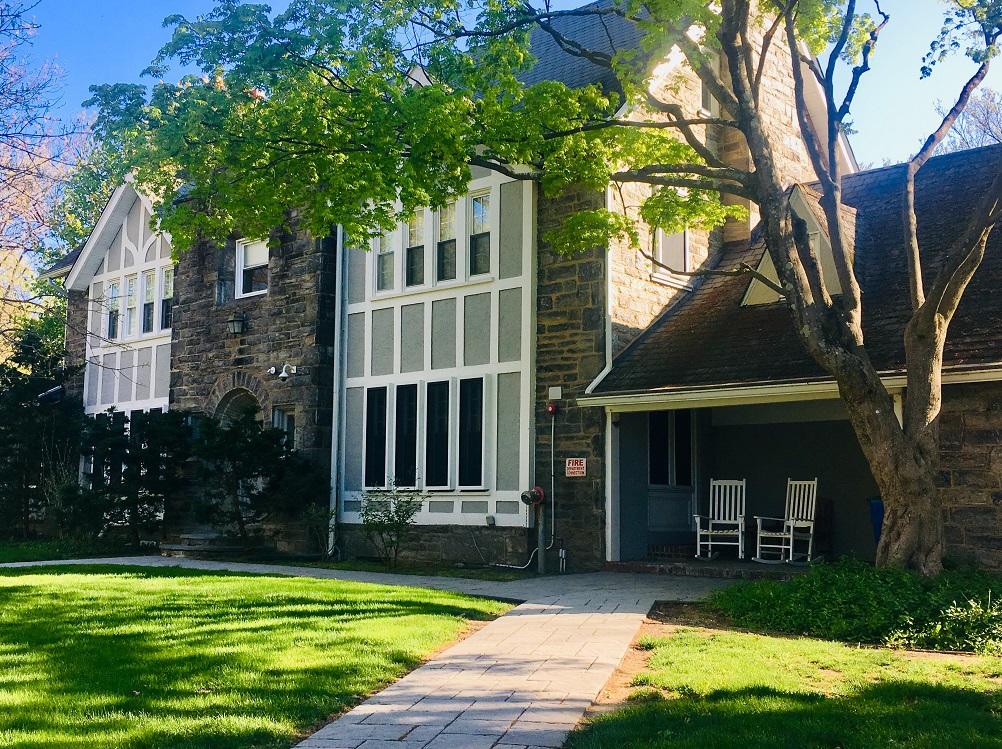
| Learn more about the Collegiate Recovery Program (CRP) and the on-campus Recovery Residence at Saint Joseph's University! |
